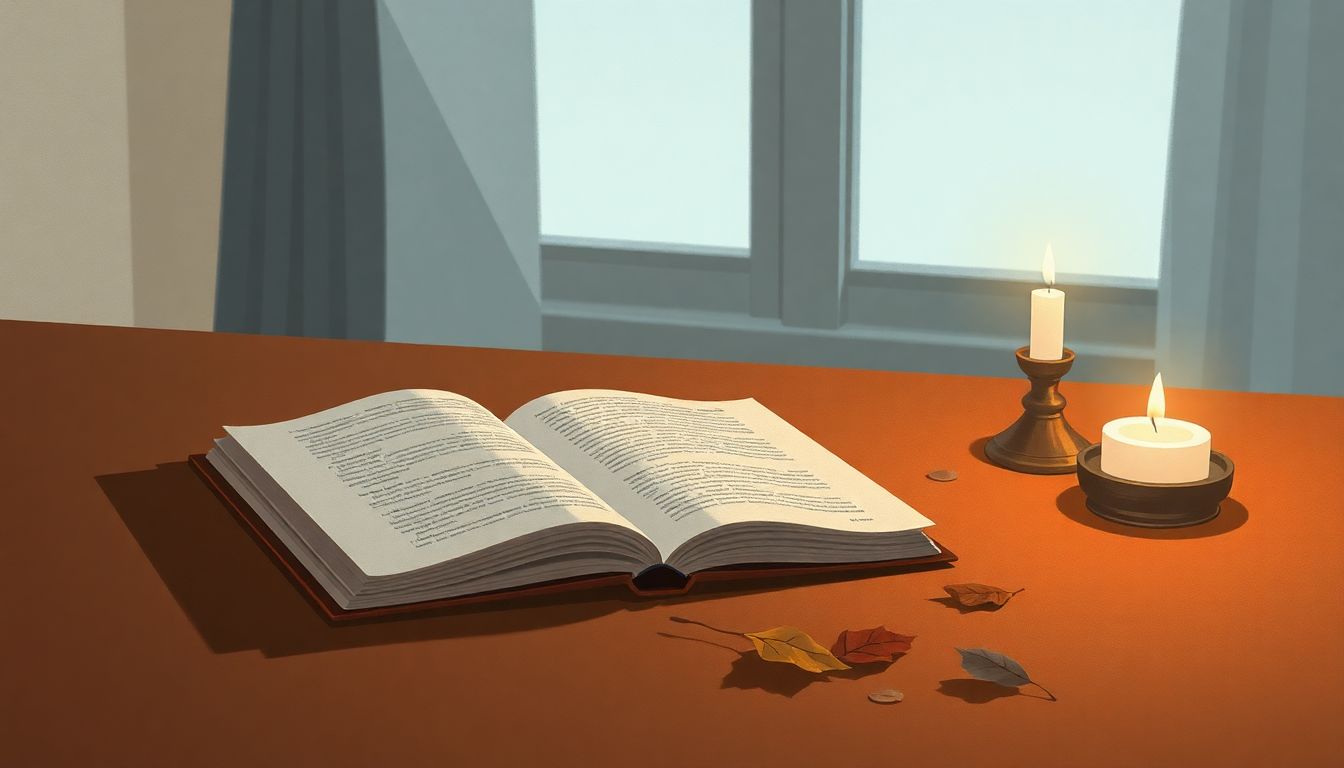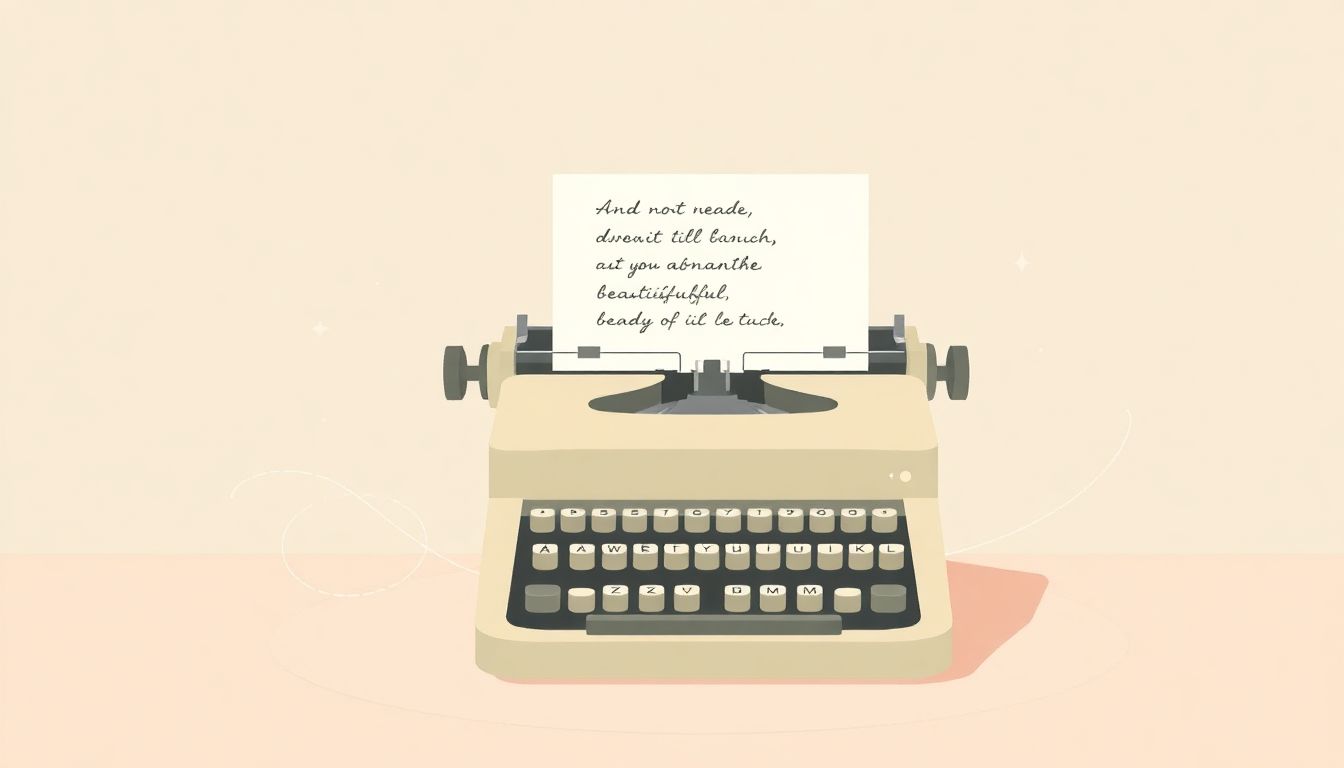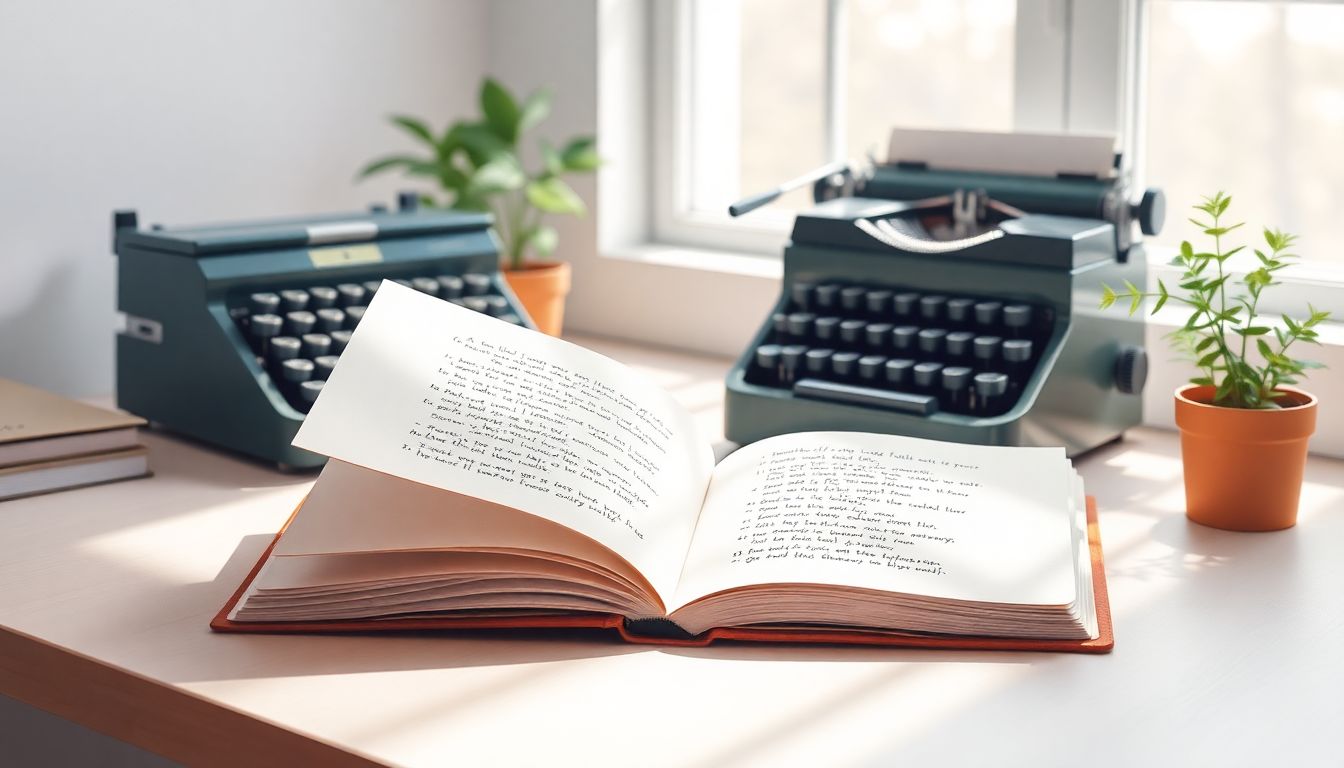Creating poetry can sometimes feel daunting, especially when you’re stuck for inspiration. If you’ve ever felt that creative block while sorting through your thoughts, you’re definitely not alone. The good news? There’s a way to spark your imagination and find beauty in the everyday.
Stick with me, and I’ll show you how to use prompts effectively with ChatGPT to create amazing found poetry. With just a few pointers, you can turn regular words into a masterpiece that reflects your unique voice and experiences.
We’ll explore the best prompts, effective crafting tips, and common pitfalls to avoid, so you can dive into the wonderful world of found poetry confidently. Let’s get your creative juices flowing!
Key Takeaways
- Use specific prompts to guide ChatGPT in creating found poetry.
- Start by selecting engaging source material like articles or song lyrics.
- Be clear and concise in your prompts to avoid confusion.
- Experiment with different themes and styles for variety in your poetry.
- Always review and refine the AI-generated content to match your voice.
- Share your found poetry online and engage with poetry communities for feedback.
- Collaborate with others to enhance your creative process and gain new perspectives.

Best ChatGPT Prompts for Creating Found Poetry
Using ChatGPT for found poetry is a fun and creative way to reimagine existing texts into something new and beautiful.
Here are some prompts you can easily copy and paste:
- Create a found poem using words from a newspaper article about climate change.
- Extract phrases from a personal letter or email and form a poem that reflects your current mood.
- Take quotes from your favorite song and transform them into an experimental poem.
- Compile a list of words you hear in a bustling café and turn them into a piece of found poetry.
- Use phrases from a recent social media feed and create a poem that comments on personal connection.
These prompts can spark your creativity and help you explore different styles of poetry using everyday language.
How to Use ChatGPT for Found Poetry
To effectively use ChatGPT for creating found poetry, start by brainstorming a source material that intrigues you—like articles, song lyrics, or even text messages.
Once you have your text, consider the tone and themes you’d like to convey. You can guide ChatGPT by inputting clear and concise prompts.
Here’s a simple step-by-step guide:
- Choose a text length; for example, 100 words is a manageable size.
- Ask ChatGPT to identify impactful phrases in that text.
- Provide a prompt like, “Use these phrases to craft a poem about longing.”
- Review the generated text, and feel free to edit it, enhancing it with your style.
By interacting with the AI in this way, you can end up with a unique piece of poetry.
Examples of Found Poetry Prompts for ChatGPT
If you’re looking for inspiration, here’s a list of specific found poetry prompts designed for ChatGPT:
- Using excerpts from a classic novel, create a poem that captures the essence of love.
- Take lines from a famous speech and create a modern commentary on social issues.
- Gather everyday phrases you hear and craft a poem about urban life.
- Extract words from a scientific text and form an abstract piece reflecting on nature.
- Compile your friends’ texts and create a humorous poem about friendship.
These examples illustrate how you can play with language and form to create something meaningful.
Tips for Crafting Effective Prompts for Found Poetry
Good prompts can elevate your poetry game, so here are some tips to craft effective ones:
First, be clear in your instructions. Instead of vague prompts like “write a poem,” specify the content, tone, and style.
For example, you might say, “Generate a whimsical poem using phrases about childhood found in old letters.”
Also, keep it concise. Lengthy prompts can overwhelm ChatGPT, so aim for clarity.
Try different styles and themes in your prompts for variety. You could experiment with prompts like:
- “Using quotes from a travel blog, compose a poem about adventure.”
- “Craft a piece using only terms related to technology and innovation.”
Finally, don’t be afraid to revise or adjust your prompts based on the responses you receive, as this can lead to unexpected and exciting results.

Common Mistakes to Avoid When Using ChatGPT for Poetry
When diving into found poetry with ChatGPT, it’s easy to make some common mistakes that could hinder your creative flow.
First, avoid overly complex prompts. Keep your instructions straightforward; complex sentences can confuse the AI.
Don’t underestimate ChatGPT’s limitations. While it’s powerful, it can misinterpret context or generate responses that veer off-topic.
Another misstep is to ignore the suggested content. Always take the time to review and refine what the AI generates rather than accepting it as is.
Be specific with your prompts. Vague prompts often yield vague results, so aim for clarity in your requests.
Failing to edit and revise generated content can lead to missed opportunities for improvement. Always polish your found poems to reflect your voice.
Lastly, be mindful of context. If you pull phrases from diverse sources, ensure they align thematically to create a cohesive poem.
Benefits of Using ChatGPT for Found Poetry Creations
Using ChatGPT for found poetry offers numerous advantages that can elevate your creative experience.
First, it serves as a unique partner in creativity, helping you break through writer’s block.
ChatGPT can enhance your poetic repertoire by suggesting new forms and structures you might not typically explore.
It also speeds up the writing process, allowing you to generate multiple drafts quickly and efficiently.
This AI-powered tool provides fresh perspectives, inspiring poetry that you may not have discovered alone.
In addition, working with AI can encourage experimentation, making it easier to try unconventional styles and themes.
Moreover, the collaborative aspect of using ChatGPT can be energizing, leading to a dynamic interaction that enriches your creative output.
Finally, having an AI assist in your poetry can cultivate a more playful and adventurous approach to your writing.
Sharing and Collaborating on Found Poetry with ChatGPT
Once you’ve crafted your found poetry with ChatGPT, sharing and collaborating on your work can deepen your engagement with the craft.
Start by showcasing your creations on social media platforms, where poetry communities are vibrant and encouraging.
Consider participating in collaborative poetry projects, where you and others can build on each other’s ideas and styles.
You could even host a virtual poetry reading to share your found poetry and invite feedback or partnerships.
Engage with fellow poets online by joining forums and groups that focus on experimenting with AI-generated poetry.
Publishing your works in digital spaces or zines encourages a dialogue about AI’s role in artistic expression.
Lastly, use collaboration tools like Google Docs to share your poetry drafts with friends, enabling real-time feedback and suggestions.
By opening up your creative process, you not only learn from others but also foster a community around found poetry.

Common Mistakes to Avoid When Using ChatGPT for Poetry
When diving into found poetry with ChatGPT, it’s easy to make some common mistakes that could hinder your creative flow.
First, avoid overly complex prompts. Keep your instructions straightforward; complex sentences can confuse the AI.
Don’t underestimate ChatGPT’s limitations. While it’s powerful, it can misinterpret context or generate responses that veer off-topic.
Another misstep is to ignore the suggested content. Always take the time to review and refine what the AI generates rather than accepting it as is.
Be specific with your prompts. Vague prompts often yield vague results, so aim for clarity in your requests.
Failing to edit and revise generated content can lead to missed opportunities for improvement. Always polish your found poems to reflect your voice.
Lastly, be mindful of context. If you pull phrases from diverse sources, ensure they align thematically to create a cohesive poem.
Benefits of Using ChatGPT for Found Poetry Creations
Using ChatGPT for found poetry offers numerous advantages that can elevate your creative experience.
First, it serves as a unique partner in creativity, helping you break through writer’s block.
ChatGPT can enhance your poetic repertoire by suggesting new forms and structures you might not typically explore.
It also speeds up the writing process, allowing you to generate multiple drafts quickly and efficiently.
This AI-powered tool provides fresh perspectives, inspiring poetry that you may not have discovered alone.
In addition, working with AI can encourage experimentation, making it easier to try unconventional styles and themes.
Moreover, the collaborative aspect of using ChatGPT can be energizing, leading to a dynamic interaction that enriches your creative output.
Finally, having an AI assist in your poetry can cultivate a more playful and adventurous approach to your writing.
Sharing and Collaborating on Found Poetry with ChatGPT
Once you’ve crafted your found poetry with ChatGPT, sharing and collaborating on your work can deepen your engagement with the craft.
Start by showcasing your creations on social media platforms, where poetry communities are vibrant and encouraging.
Consider participating in collaborative poetry projects, where you and others can build on each other’s ideas and styles.
You could even host a virtual poetry reading to share your found poetry and invite feedback or partnerships.
Engage with fellow poets online by joining forums and groups that focus on experimenting with AI-generated poetry.
Publishing your works in digital spaces or zines encourages a dialogue about AI’s role in artistic expression.
Lastly, use collaboration tools like Google Docs to share your poetry drafts with friends, enabling real-time feedback and suggestions.
By opening up your creative process, you not only learn from others but also foster a community around found poetry.
FAQs
Found poetry involves creating poems using existing texts. ChatGPT can assist by generating remix prompts or arranging selected phrases into poetic forms, helping users discover new meanings and artistic expressions.
To create effective prompts, be specific about themes or styles, include key phrases or words, and encourage creativity. Clear, concise prompts give ChatGPT and you a better starting point for unique poetic outputs.
Avoid vague prompts, which can lead to irrelevant outputs. Also, be cautious with copyright issues from original texts used in found poetry. Lastly, trust your creative judgment over AI suggestions for authentic results.
You can share your ChatGPT-generated poetry by exporting text or using collaboration tools like Google Docs. Engage others in providing feedback or brainstorming new prompts to enhance your poetic creations together.
